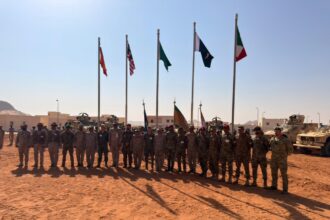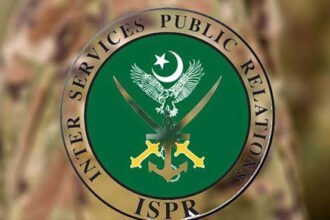
By: Abid Ali Khan
(Senior Journalist & Political Analyst)
The Middle East once again stands on the brink of war, as tensions between Iran and Israel have escalated into a dangerous military confrontation. Tehran is in mourning following the martyrdom of a senior officer of the Islamic Revolutionary Guard Corps (IRGC). In response, Iran not only launched strong retaliatory strikes but also announced a reshuffle in its intelligence leadership. Meanwhile, Washington’s approach remains clouded with ambiguity—President Donald Trump, on one hand, hints at the possibility of negotiations with Tehran, while on the other, issues stern warnings regarding Iran’s nuclear ambitions.
Public Reaction and Protests:
Within the United States itself, the situation is equally uncertain. Large crowds have taken to the streets to protest against their own government’s foreign policy. Demonstrators are demanding that the U.S. refrain from direct military involvement in the Israel-Iran conflict. Much of their anger is directed at the billions of dollars in military aid being provided to Israel, which they see as support for a belligerent state. Protesters are urging former President Trump to avoid dragging the region into another devastating war.
Israeli Strikes and Iran’s Retaliation:
Israel has targeted nuclear facilities in Natanz, Isfahan, Arak, and Bushehr, prompting strong condemnation from the international community. Russia lodged a formal protest following reports that Israel attacked the Bushehr reactor, which is under Russian supervision. In response, Israeli officials retracted their statement, calling it a “miscommunication.” According to IRGC sources, an Israeli drone was successfully downed in Iran’s Lorestan province—signaling Iran’s defensive readiness.
Diplomacy or Confrontation?
President Trump’s stance appears contradictory. While denying reports of an imminent attack on Iran, he has also floated the idea of demanding Iran’s “unconditional surrender.” According to The Wall Street Journal, Trump has approved a military plan against Iran but has delayed its execution to observe whether Iran abandons its nuclear pursuits. This delay indicates either a final push for diplomacy or a strategic pause in response to international pressure.
Iran’s Offensive Posture and Regional Implications:
Iranian Foreign Minister Abbas Araghchi confirmed that precision strikes had been carried out against Israeli intelligence, command and control centers. Meanwhile, Iraq’s leading religious authority, Ayatollah Sistani, strongly condemned Israel’s threats to Iran’s Supreme Leader, terming them a violation of religious and moral values as well as international norms. He warned that such acts could have far-reaching and disastrous consequences for the entire region.
Conclusion:
A Decisive Moment this rapidly evolving situation has the potential to reshape the balance of power in the Middle East. Iran’s determined defense and offensive posture, Israel’s aggressive strategy, and America’s indecision—these three factors are collectively pushing the region toward a new theater of war. If the international community fails to intervene in time, a localized conflict could spiral into a broader international crisis. In the current climate, diplomacy remains the only viable path to avert catastrophe in the region.






